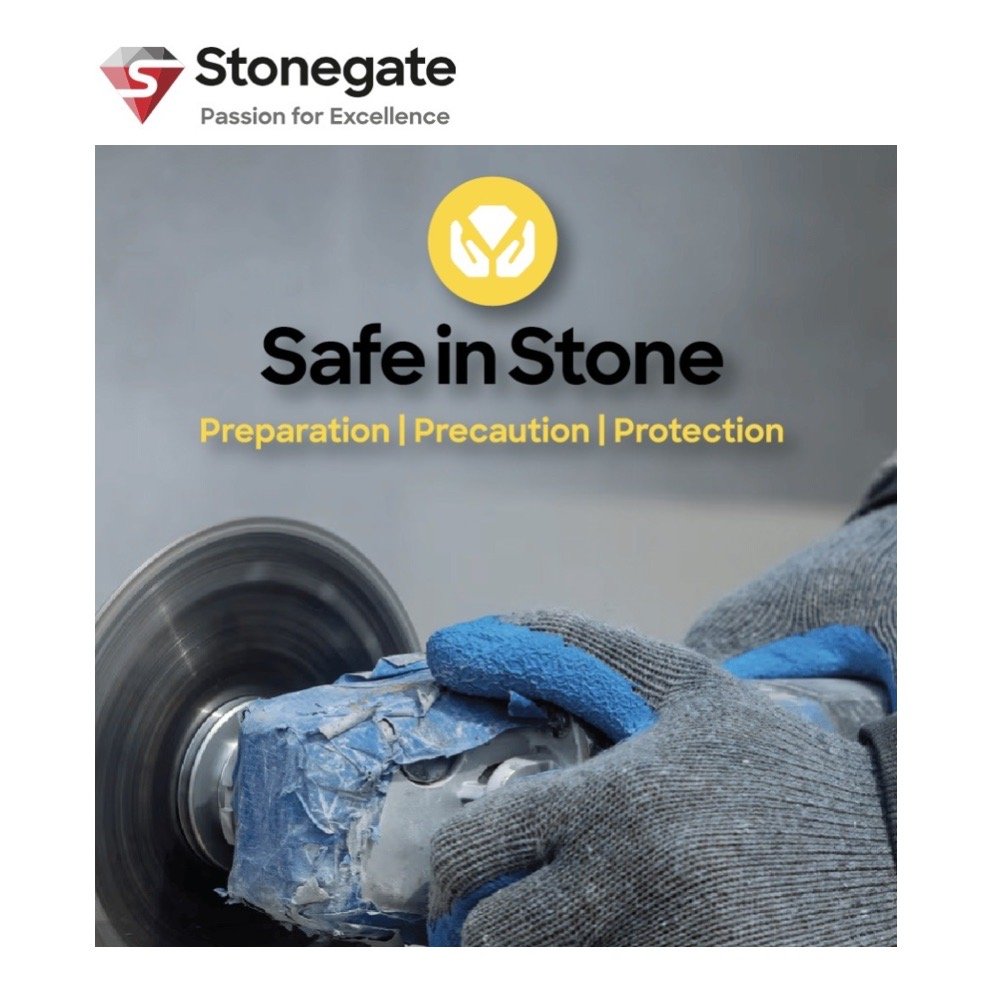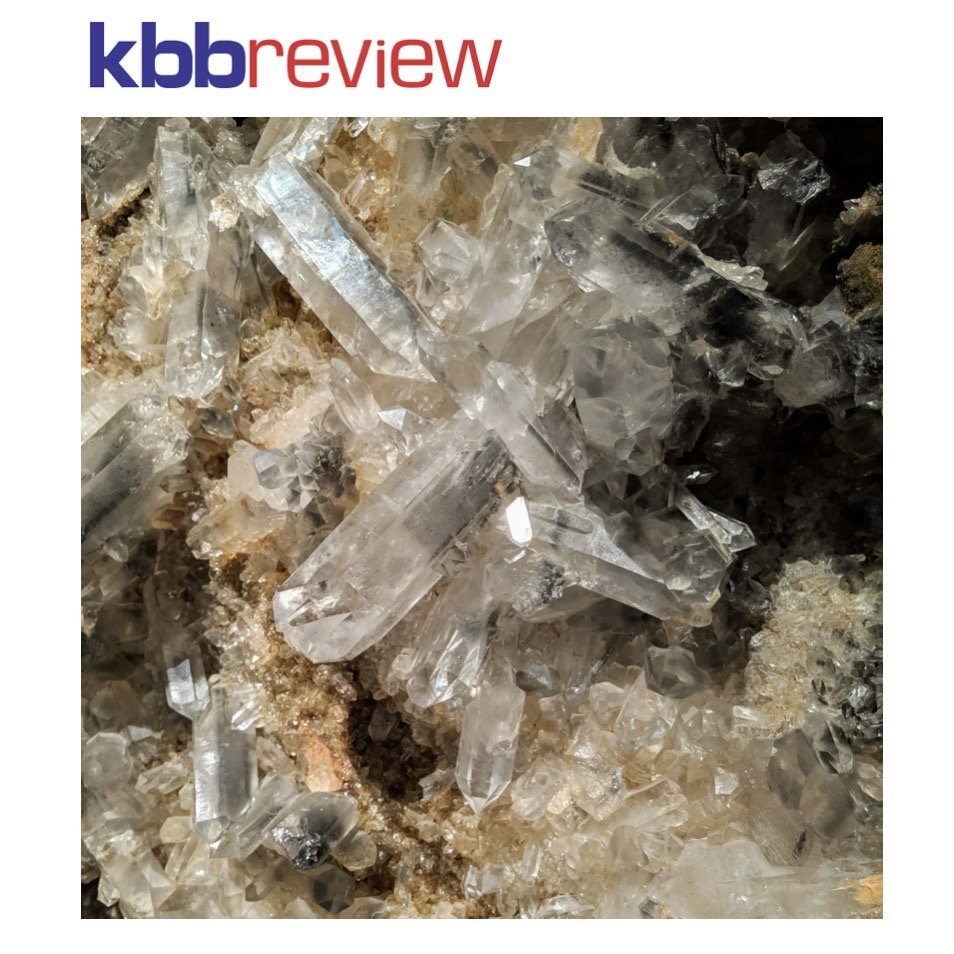SILICA & SILICOSIS
“Trendy quartz kitchen worktops should be BANNED as they raise risk of incurable lung disease, doctors warn - after eight cases in the UK”
THE FACTS
A QUARTZ WORKTOP ONCE INSTALLED IS PERFECTLY SAFE!
These sensational headlines need clarity, the risk is when machining, without the correct procedure - read our statement below. Please contact us if you require further information.
WHAT IS SILICA?
Silica is one of the most common compounds on earth. Crystalline silica commonly occurs in nature as the mineral quartz, and is found in granite, sandstone, quartzite, various other rocks, and sand. It is comprised of two chemical elements: silicon and oxygen (silicon dioxide; SiO2).
It is a component of many manufactured products in daily use, such as glass, pottery and quartz surfaces; and of construction materials such as bricks, blocks, tiles, slabs, cement, ceramic and concrete.
WHAT IS SILICOSIS?
Silicosis is an occupational disease that has been known about for more than a century. It may affect workers in the stone fabrication industry when fabricating marble, granite, quartz surfaces and other natural stones without safety measures.
Silicosis is an incurable, progressively disabling and sometimes fatal lung disease. It is caused by unprotected and uncontrolled ongoing occupational exposure to respirable crystalline silica (RCS) particles, without the protective health and safety measures required by law.
Silicosis and other diseases associated with RCS are 100% preventable with the correct safety measures, such as wet cutting in place and the use of effective respiratory protection measures.
SILICA DUST HAZARD CONTROL
Exposure can be reduced and controlled if the proper safety measures are implemented. These measures include, among others, installing proper engineering controls (ventilation and filtration), working with CNC machines and water-injected tools, and using appropriate respiratory protection.
In order to control and reduce/eliminate the health risks associated with crystalline silica, we recommend that a Silica Control Plan be implemented in the workplace in accordance with all the applicable laws, regulations, orders and directives. This program should be reviewed on a regular basis or whenever there is any change to the work environment or daily workflow.
WFF FAQ’s
A statement from the Worktop Fabricators Federation that gives the facts.
SILICOSIS VICTIM TAKES LEGAL ACTION
30 October 2024 - Marek Marzec takes legal action against several of his former employers…
WFF & HSE COLLABORATION
WFF collaborate with HSE for safer working practices…
NEW ENGINEERED STONE GUIDELINES
The UK’s Health & Safety Executive (HSE) has drafted new guidelines for tradespeople working with engineered stone…
WFF responds to fresh calls for UK engineered stone ban
Following widespread media reports of new cases of silicosis and medical experts joining the call for a UK artificial stone ban, the Worktop Fabricators Federation (WFF) has updated its guidance around occupationally-acquired silicosis.
Originally published last December and then updated this week, the WFF statement outlines that while silicosis is a dangerous disease, the danger comes from not following health and safety guidelines when cutting and fabricating.
Its broad advice for retailers, designers, specifiers, installers and consumers is that there is no direct health risk as a result and they should always seek qualified, compliant fabricators.
“Banning engineered quartz does not remove the risk of respirable crystalline silica dust (RCS) exposure,” the WFF says. “Many natural stone materials contain high proportions of crystalline silica, as do many ceramic products.
“Good quality factory management, water-based dust-suppression and proper monitoring of workers’ health are still absolutely de rigueur in a well-run worktop factory, immaterial of the precise material under the saw.”
RCS is both a dust hazard and a carcinogen and is created only when natural or engineered stone materials are cut, shaped, and finished prior to installation.
“It is important to note in this context that this is a factory management issue,” the WFF guide says. “There is no health risk to showroom staff, installers or consumers associated with specifying, handling, shipping, installing or using engineered stone worktops.”
The WFF also highlights the current Health and Safety Executive (HSE) guidance for factory owners and enforcement teams. That guidance states: “Products containing silica can be processed safely when proper controls are put in place. We would urge all manufacturers and fitters to ensure that they use suitable controls to protect their workers and themselves from inhaling silica dust.”
The WFF notes that recent concerns over RCS dust have been driven by two key developments: Australia’s ban on engineered stone products due to high silica content and the first UK cases of occupational silicosis among stone worktop fabricators.
Kent-based Herringbone Kitchens recently decided to stop the sale of high-silica engineered stone quartz, and even formed a government petition to consider a UK ban.
The WFF believes that while Australia’s ban addresses historical exposure risks, improvements in stone manufacturing have already reduced silica content in modern products.
Despite this, recent UK cases highlight significant safety failures, particularly among low paid manual workers lacking proper health and safety training. The WFF emphasises that dry-cutting stone generates hazardous RCS dust and that “relying solely on personal protective equipment (PPE) is insufficient for long-term protection.”
Nigel Fletcher, operations officer at the WFF, said: “The Federation has a wide variety of member businesses, large and small, that are all committed to following best practice and protecting their workforce. Following health and safety rules such as suppressed water cutting with the right filtration and protection, and using correct PPE, is enough to manage risk.”
To reassure customers, the WFF says that its advice is to buy from reputable fabricators. It added that its members “all operate automated cutting tools using state-of-the-art dust suppression, undertake regular health audits of their workers and hold detailed data sheets to prove the provenance of the materials they supply.”
The full statement can be found here and a full list of the WFF’s members can be found here.
WFF's statement
The facts about occupationally acquired silicosis…
SILICOSIS
What tradespeople need to know…
british institute of interior design
What designers need to know…
stonegate’s statement
Silicosis and the fabrication of Engineered Stone…
How likely is a UK engineered stone ban?
With engineered stone surface bans abroad making headlines, could similar legislation come to the UK? Andy Phillips, director and co-founder of the Worktop Fabricators Federation (WFF) offers some advice to concerned retailers.
THE ENGINEERED STONE SITUATION
Speculation about health risks associated with some engineered stone. What is Engineered Stone?
WHY IT’S IN THE NEWS
WFF were asked by Andrew Davies of KBB Review to address kitchen retailers’ understanding of stone worktops – especially in the light of some of the unhelpful headlines that have been appearing about silica dust.
One of our directors, Andy Phillips, gave Andrew an interview while we were at the Hard Surfaces show 2023. Tap the image below to play/listen:
BANNING STONE WORKTOPS won’t save lives
The British Occupational Hygiene Society says that there is no reason for Britain to follow Australia’s lead in banning engineered stone worktops.
STATEMENT BY THE TECHNISTONE COMPANY
The risks of working with Engineered Stone.
RESTRICTING QUARTZ
NSS reports how Australia is moving a step closer to restricting the use of Quartz.
SILICOSIS DANGER
Interior designers alerted to Australian talk of banning engineered stone.
silestone dust case
Cosentino settles 15-year legal dispute around warning workers to take care around Silestone dust.
COSENTINO STATEMENT
In response to the recent news published regarding the judgment of a case involving Cosentino, the company would like to express the following…
APPG REPORT
Parliamentarians seek feasibility study on improving Silicosis Outcomes in the UK.
WORKPLACE EXPOSURE LIMITS
Granite Tops UK, Case Study - Reducing the Workplace Exposure Limits(WEL) in the air.




















